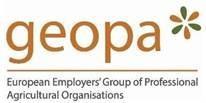
The social partners in agriculture discussed in particular:
- The improvement of sectoral social dialogue structures at European and national level;
- Improving transparency in relation to the results of social partner negotiations and their application;
- Improving the visibility of sectoral social dialogue and ensuring that tripartite consultation structures function effectively;
- Increased support for capacity building to improve the representativeness of the social partners;
- Promoting a stronger culture of social dialogue at the national level, especially through training and support for young future leaders of social organisations.
- Raising the profile of social dialogue, increasing awareness and promoting the value of social dialogue.
Social dialogue helps to stabilise employment, reduce inequalities and build resilience, thus helping to mitigate the impact of the crisis and support a sustainable recovery. Our common goal is to create the right conditions to mobilise and harness the full potential of social dialogue. All existing legal obstacles that hinder the development and work of the European and national social partners should be identified and abolished.
In particular, the European social partners in agriculture support the proposed instruments to raise the profile of social dialogue within the EU (European Social Dialogue Award and Young Future Leaders Programme of the social partner organisations) and declare their willingness to actively participate in the proposed instruments.
The European social partners in agriculture support the plan to involve the social partners more closely in the European Semester and welcome in particular the involvement of the national social partners in agriculture in the preparatory work on the national recovery and resilience plans. By doing so, the European Social Dialogue will remain a representative forum for discussion and policy benchmarking, while at the same time respecting Member States’ competences as defined by the Treaties.
The European agricultural social partners support the project to provide additional and targeted support to the national social partners, based on the needs identified by the national social partners in the Member States concerned. National governments and social partners should discuss how best to use available EU funds to support capacity building. The Commission could support such efforts by doing more to promote a process of mutual learning and exchange of successful practices between EU countries.



